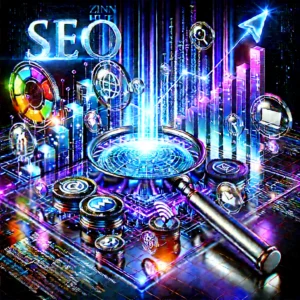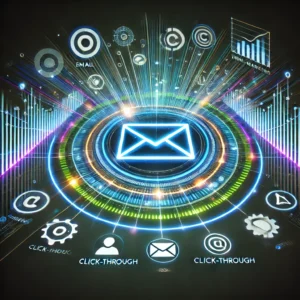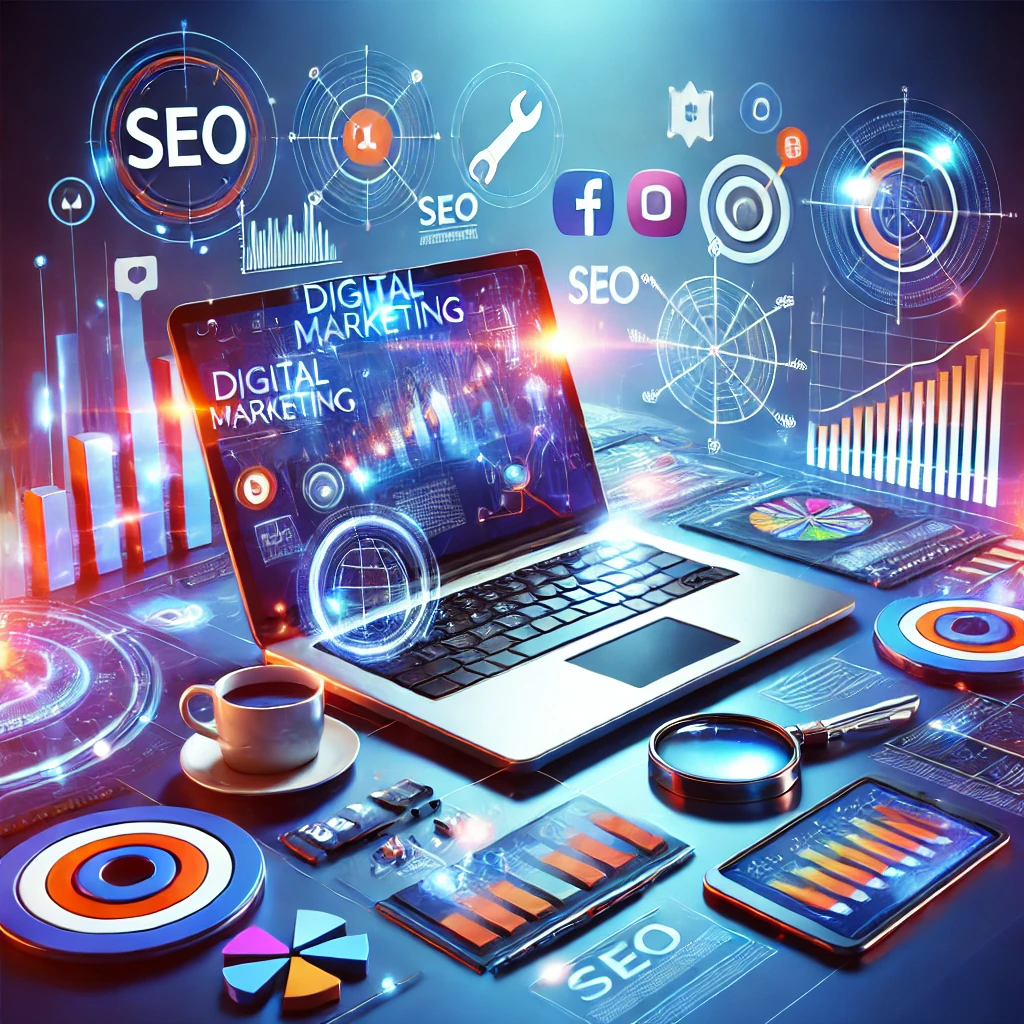Table of Contents
In a modern digital marketing age when the typical person spends several hours a day online, companies are changing their approach of interacting with possible consumers. Print, radio, and television are still among the conventional marketing outlets that hold value. Digital marketing is, however, the true game-changer in the contemporary corporate scene.
You have dealt with digital marketing, whether you have ever seen a social media ad, got a promotional email, or searched Google for a product. But just what is it, how does it work, and why is it so important?
What is Digital Marketing?
Digital marketing is all marketing activity conducted using an electronic device or the internet. Companies now use digital channels including search engines, websites, social media, email, mobile apps, and even text messaging. To relate to both present and future clients, both close by and far away.
Digital marketing is interactive, data-driven, and real-time, unlike more conventional approaches. It enables constant optimisation, measured results, and exact targeting. Whether you run a local bakery or a multinational IT company, digital marketing offers a means of more precisely reaching your audience than ever before.
The Value of Digital Marketing in the Contemporary Modern Society
People now shop, learn, and make decisions online differently! Before they ever interact with a brand, modern consumers mostly depend on online research, reviews, social proof, and digital interactions. This implies that you are losing a great chance if your company is not easily visible online.
Digital marketing is no more optional; it is rather necessary for the following reasons:
- Billions of users online: Every day, billions of people use the internet including your perfect clients.
- Mobile-first behaviour: People search, shop, and browse from cellphones more than from desktop computers.
- Hyper-targeted reach: Target users depending on location, interests, behaviour, and demographics by means of hyper-targeted reach.
- Real-time feedback: Real-time comments let campaigns be changed right away depending on performance data.
- High return on investment (ROI): High return on investment (ROI) under appropriate strategy and implementation.
Fundamental Elements of Digital Marketing
Let us dissect the main subfields of digital marketing and discuss their respective applications:
1. Search Engine Optimization (SEO)
SEO, or search engine optimisation of your website and content, is the process by which, particularly Google, it shows higher in search engine results. includes:
- Keyword research
- On-page optimisation (meta tags, headers, internal linking)
- Technical SEO (site speed, mobile-friendliness, structured data)
- Backlink building
- Local SEO (Google Business Profile, reviews, NAP consistency)
Good SEO will generate natural traffic. These are those who come upon your website via non-paid search results. It creates online long-term credibility and exposure.
👉Read the Zinn Hub blog on The Complete SEO Deep Dive 2025
👉Read the Zinn Hub blog on The best SEO Tools For Every Need 2025

2. Content Marketing
Content marketing is the production of excellent, worthwhile material meant to draw in, enlighten, and interact with your readers. Content marketing emphasises giving actual value over time to build trust rather than launching a sales pitch.
Types of content include:
- Blog posts
- Articles
- Videos
- Infographics
- eBooks
- Podcasts
- Webinars
If you’re looking to streamline your workflow, check out our 👉 must-have content creation tools for 2025 — these are handpicked tools we personally use and recommend.
To take your strategy to the next level, explore 👉 The Content Stack, a framework for building a full year of marketing content in just one weekend.
And for a broader collection, don’t miss 👉 The Ultimate Toolkit of Digital Marketing Content Creation, curated specifically for creators, marketers, and entrepreneurs.
Content marketing positions your brand as an industry expert and supports SEO, social media, and lead generating.
3. Social Media Marketing
Digital marketers now rely critically on social media sites including Facebook, Instagram, LinkedIn, Twitter, and TikTok. Paid ads as well as natural material constitute part of social media marketing.
Main advantages are:
- Brand visibility
- Community building
- Customer service and engagement
- Managing focused advertising campaigns
- Driving traffic and conversions
Every platform has advantages, thus the strategy relies on the areas of activity of your target audience.
👉 Read the Zinn Hub blog on why social media is the powerhouse of modern marketing
👉 Read the Zinn Hub blog on TikTok Marketing in 2025: The Complete Strategy Guide
👉 Read the Zinn Hub blog on The Complete Guide to Facebook Marketing
👉 Read the Zinn Hub blog on Linkedin Marketing in 2025
👉 Read the Zinn Hub blog on Pinterest Marketing
👉 Read the Zinn Hub blog on The beginner’s Guide To Twitter
4. Email Marketing
Email marketing is still rather effective even if it is among the first forms of digital marketing. It is used for:
- Nurture leads through a sales funnel
- Share news, offers, and updates
- Send personalised messages based on user behaviour
- Build long-term customer relationships
Email campaigns can be incredibly personalised and performance-driven, with tools like segmentation and automation.
👉 Read the Zinn Hub blog on why email marketing is the underrated strategy you can’t ignore

5. Pay-Per-Click Advertising (PPC)
Under PPC, a model of online marketing, advertisers pay each time a user clicks their advertisement. Typical platforms consist of:
- Google Ads (search, display, shopping)
- Meta Ads (Facebook and Instagram)
- LinkedIn Ads
- YouTube Ads
For time-sensitive campaigns or competitive sectors especially, PPC provides instant visibility and traffic and performs particularly effectively.
👉 Read the Zinn Hub blog on PPC Made Easy: Pay-Per-Click Tips to Get Results Without Wasting Cash.
6. Affiliate Marketing
Affiliate marketing is a performance-based strategy where partners (affiliates) promote your product or service in exchange for a commission on every sale or lead they generate.
Since you only pay for actual results, it is low-risk for companies; nevertheless, it helps increase the reach of your brand by means of reliable influencers, bloggers, or niche marketers.
👉 Read the Zinn Hub blog on the power of affiliate marketing.
7. Influencer Marketing
Influencer marketing taps into the trust that online personalities have built with their followers. Brands collaborate with influencers, both big and small, to promote their offerings through social media, YouTube, or blogs.
It is particularly successful in lifestyle, beauty, fashion, tech, and health niches and often drives involvement, credibility, and brand awareness.
👉 Read the Zinn Hub blog on the power of influencer marketing
8. Mobile and SMS Marketing
Since mobile devices control screen time, marketing now directly to smartphones takes front stage. This includes:
- SMS/text campaigns
- In-app ads
- Mobile-optimised websites and emails
- Location-based targeting
Mobile marketing is perfect for flash sales, appointments, and reminders since it lets high open rates and quick involvement possible.
👉 Read the Zinn Hub blog A Complete Guide to Mobile and SMS Marketing

9. Analytics and Performance Tracking
Data transparency of digital marketing is among its main benefits. Tools like:
- Google Analytics
- Meta Pixel
- UTM tracking
- CRM dashboards
This lets companies track every metric including click-through, conversion, and return on equity. A/B testing ads, audience refining, and user movement across your digital funnel helps you better understand all around.
👉Read the Zinn Hub blog on How To Read Google Analytics
👉Read the Zinn Hub blog on Dark Social: The Invisible Force Driving Your Best Leads
10. Employee Generated Content (EGC)
Employee generated content (EGC) is when your team shares honest stories about their experiences at work—think social posts, photos, or quick behind-the-scenes videos. These moments feel real because they are.
People trust what employees say about a company far more than any polished marketing message. When staff are happy to share what they love about their workplace, it puts your brand in the best light, helps you reach new people, and can even attract the next great hire.
👉 Read the Zinn Hub blog on The Rise in Employee Generated Content
Digital Marketing Strategies: B2B vs. B2C
Your company model will affect the variation in digital marketing strategies:
B2B (Business-to-Business):
- Focus on LinkedIn, email campaigns, and whitepapers
- Long sales cycles and multi-touch nurturing
- Emphasis on lead generation, demos, and value
👉Read the Zinn Hub blog on B2B Marketing
B2C (Business-to-Consumer):
- Strong focus on social media, influencers, and emotional appeal
- Shorter sales cycles, often impulse-driven
- High-converting landing pages and retargeting ads
👉Read the Zinn Hub blog on B2C Marketing
Understanding your audience is critical to selecting the right digital channels and brand messaging!
Benefits of Digital Marketing
Here’s a summary of why digital marketing is so powerful:
- ✅ Global reach with local precision
- ✅ Cost-effective even for small and tight budgets
- ✅ 24/7 marketing your campaigns run while you sleep
- ✅ Real-time insights for ongoing improvement
- ✅ Personalization at scale
- ✅ Stronger customer relationships through regular engagement
Mastering Digital Marketing
Digital marketing is no longer a “nice to have”. It’s the cornerstone of modern business success! Whether you’re looking to grow your brand, drive more traffic to your website, increase sales, or simply stay competitive in your industry, digital marketing provides the tools and tactics to make it happen.
From SEO to social media, email to analytics—mastering digital marketing unlocks scalable, sustainable development.




